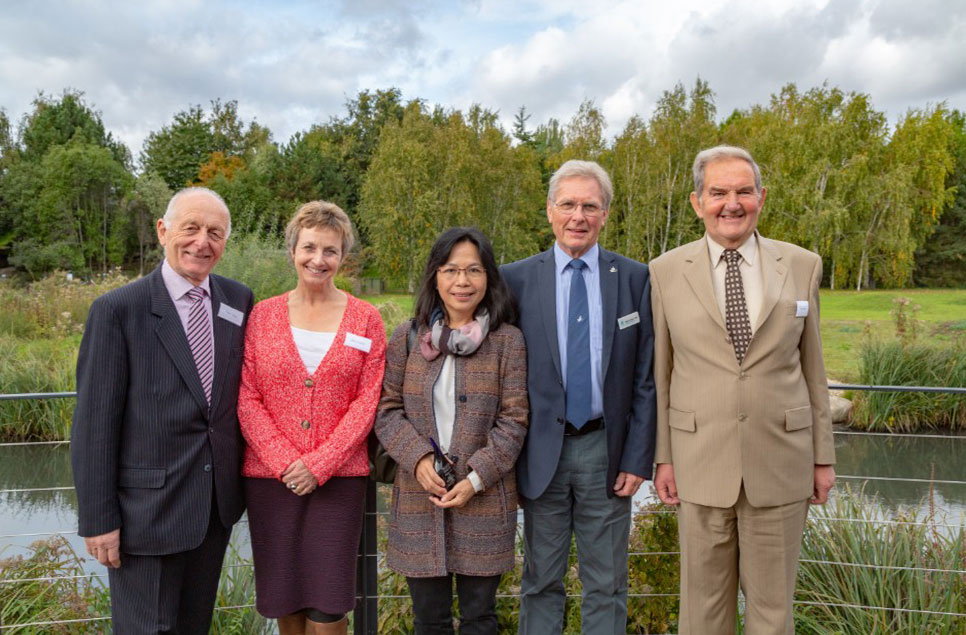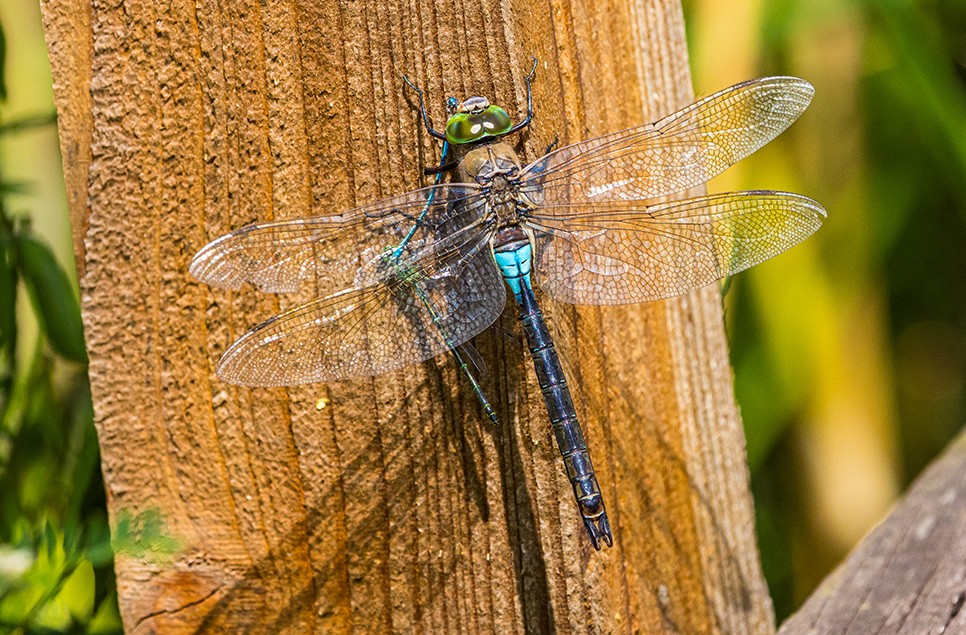Wetland conservation heroes - the Marsh Awards 2019
Mary Colwell and David Hindle have been given a Marsh award each from Peter Titley of the Marsh Christian Trust, whilst the other recipient, Dr. Llewellyn Young’s, posthumous award was accepted by his wife Deborah.

Three conservation heroes have been recognised for their achievements when they received a Marsh Award for Wetland Conservation from the WWT in partnership with the Marsh Christian Trust at the AGM on 10 October.
Mary Colwell and David Hindle received their awards from Peter Titley of the Marsh Christian Trust, whilst the other recipient, Dr. Llewellyn Young’s, posthumous award was accepted by his wife Deborah.
Mary Colwell received her award for her work in raising awareness of the plight of the curlew, now one of the UK’s most threatened birds. Earlier this year, Mary instigated a summit of key politicians and stakeholders at No.10 Downing Street, which led Ministers to call the curlew, the ‘panda of UK conservation.’ In 2018, she persuaded the public to care about the curlew’s plight by establishing April 21 as the annual World Curlew Day. She has also organised four national conferences in Ireland, England, Wales and Scotland to lay plans for protecting the curlew’s future.
David Hindle’s award was in recognition of his work over many years in monitoring the wildlife on three unused reservoirs in Grimsargh, five miles north of Preston. This monitoring work was a major contributor to the reservoirs being saved from potential large-scale housing, and instead being designated as a community conservation area in 2009. Ownership of the reservoirs transferred to Grimsargh Parish Council in 2017, which established the Grimsargh Wildlife Trust, which David chairs, to oversee the reserve’s management for the benefit of the local and wider community.
Dr Llewellyn Young received the international award posthumously in recognition of his work as a passionate and inspirational conservationist, who had committed his whole career to the conservation of wetlands and waterbirds. For nearly 20 years, he managed the Mai Po Nature Reserve in Hong Kong SAR, one of the best-know wetland reserves in the migratory flyway. Here he instilled best practices for wetlands management and created education programmes for students and visitors. In 2008 he became Senior Regional Advisor for Asia-Oceania in the Ramsar Convention secretariat in Switzerland, working with partners across the region to address threats to key wetlands. In 2018 he was appointed Chief Executive of the East Asian Australasian Flyway Partnership until his death in March this year.



